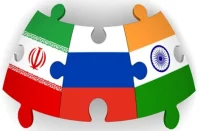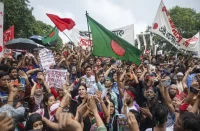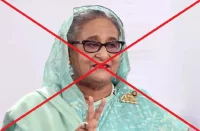Aurobinda MАHAPATRA (India)
The recent leaks by the whistle blower website Wikileaks indicate the surreptitious nature of diplomacy which can have wider consequences. Reportedly, out of 251,287 cables that are with WikiLeaks, 3,038 originated from the US embassy in New Delhi.The leaks, despite throwing light on complex politics of South Asia, have further compounded the already fragile politics instead of easing tensions in the region. The cables on the one hand brought into picture the wide gap between policy proclamations and their real implementation, and on the other they reflected the politics of dualism which has acquired centre stage, more so recently, in the politics of various players in the region. Perhaps in the mood to ease out tensions in bilateral relations, the US has in advance forewarned India of ‘potentially embarrassing’ leaks from its embassies in Islamabad and Kabul, which will likely hold in their brief more ugly or what is called ‘candid’ and ‘forthright’ interactions between the diplomatic missions and agencies.
The US President Barack Obama during his visit to India in early November this year has sounded most cordial and friendly with India. He was the first US leader who openly endorsed India’s aspirations to be a permanent member in the United Nations Security Council, while delivering his speech in Indian parliament. Indian leaders were in mood of jubilation that here is the US leader who supported India’s global aspirations. In fact the US’ earlier hesitations in supporting India’s permanent membership aspiration made this statement of the US president more important and coveted before the Indian eyes. But as the leaks reveal, it seems the pronouncements of the president might not be followed in action wholeheartedly. The leaks have cast doubt on the US real intentions about the possible expansion of the UNSC, and the probable role that the US will play in ensuring India’s ascendency to the expanded body. The leaks listed directives from US Secretary of State, Hilary Clinton, one of which among other things called India a ‘self appointed front runner’ for the membership. The directive urged the US diplomats to pass on information on issues including, “International deliberations regarding UNSC expansion among key groups of countries – self-appointed frontrunners for permanent UNSC membership Brazil, Germany, India and Japan…” This left the Indian establishment or at least significant section of it in jittery and cast aspersions of the oft-repeated ‘natural’ partnership between the two countries.
Another issue of contention in the context of the Wikileaks needs emphasis as well. If the leaks are to be believed, the US tried but failed to remove sensitive nuclear material from Pakistan, lest it not fall in the hands of the terrorists. The revelations have created furor in Pakistani press and establishment. Foreign ministry spokesman of Pakistan, Abdul Basit reacted to revelations and condemned “the irresponsible disclosure of sensitive official documents,” and claimed “No one can touch Pakistan’s nuclear facilities and assets.” As Zafar Hilaly, former Pakistani ambassador to the United Nations, argued in one of India’s news channel on 29 November that the idea of transferring the nuclear materials from Pakistan without its knowledge is unfriendly, because, if the US considers Pakistan a friend, it should have engaged the Pakistan leadership and consulted on matters how to avoid such a disastrous possibility of letting sensitive material to fall in the hands of the terrorists who can use it for devious means. Though there are concerns about this, Pakistan establishment is peeved at the revelations. This revelation will likely further estrange the Pakistani leadership from the US policies in the Af-Pak region, though it may not end the bilateral relationship. It is true that in recent years the US activities in the border areas of Pakistan have made it unpopular among sections of the people, particularly the hardliners. This unpopularity of the US has increased despite the massive US aid to Pakistan for the last decade or so.
It is another point of debate that how the leaks could take place, or were there any deliberate measures towards revealing the surreptitious diplomatic activities. It may be asked how the secret communications can be leaked without collusion of some agencies linked with the communications. The leaks have in fact in them a pandora’s box, because as it reveals more, it further spills more beans in international politics with wide ranging repercussions. It is true that nations usually comprehend the various dimensions of diplomacy and the difference between policy intentions and policies implemented, but the Wikileaks revelations will likely bring nations more into a confrontational mode and upset existing patterns of relations as they will realize the seriousness or callousness of various issues related to them. Some other revelations by the Wikileaks can be mentioned here. Turkey did not invite India to participate in regional conference in Istanbul January this year in order to respect Pakistan’s ‘sensibilities.’ India which seems to have good relations with Turkey might be taken aback at such revelation. Saudi Arabia’s urge to the US to ‘cut off the head of the snake,’ meaning to nullify Iran’s nuclear programme, and the statements that Iran-Pakistan pipeline will never take off are some of the other interesting things that will be debated in coming days.
The leaks also pose questions about the diplomatic ethics practiced in international relations. While it is a norm that spying is not practiced in UN, the leaks have revealed that spying was practiced to a very large extent that even there were instances of eavesdropping at the office of the United Nations Secretary General. The Wikileaks website, as its leaks reflects, appears invincible and indomitable and unrestrained in its leaking spree. If that is the case, the forthcoming leaks will provide much fodder for diplomatic rows and convulsions in relations among nations in various parts of the globe, South Asia included.
Source: Strategic Culture Foundation














Interesting read i think your website is awesome with top notch content which i like to add to my favourites. I’d like to share everyone this new type of app that allows you to spy on other peoples blackberry phone pretty clever if you ask me check out cell phone spy
Pingback: Expectations And Outcome Of Alice Wells’ Visit To Pakistan – OrientalReview.org – DE LA GRANDE VADROUILLE A LA LONGUE MARGE